10 Best Trading Platforms by Deposit

The 10 Best Trading Platforms by Deposit revealed. Traders often require different minimum deposits to allow traders to get started in online trading. Choosing the ideal platform can substantially impact each trader’s investment journey.
In this in-depth guide, you’ll learn:
✅Why do Brokers Require a Minimum Deposit?
✅Who Are the 10 Best Trading Platforms by Deposit?
✅Understanding Deposit Requirements
✅Fees Related to Deposits that Traders Must Know
✅Our Conclusion
✅Popular FAQs
And much, MUCH more!

10 Best Trading Platforms by Deposit – a Comparison
| 🔍 Trading Platform | 🚀 Open an Account | 💵 Minimum Deposit | 🌟 Best by Deposit |
| 🥇 Exness | 👉 Click Here | Depends on Payment Method | ✅ Yes |
| 🥈 Interactive Brokers | 👉 Click Here | 0 USD | ✅ Yes |
| 🥉 XM | 👉 Click Here | 5 USD | ✅ Yes |
| 🏅 eToro | 👉 Click Here | From 10 USD (US Traders) | ✅ Yes |
| 🎖️ AvaTrade | 👉 Click Here | 100 USD | ✅ Yes |
| 🏆 HFM | 👉 Click Here | 0 USD to Register Account, 5 USD Minimum Deposit | ✅ Yes |
| 🥇 Saxo Bank | 👉 Click Here | 0 USD | ✅ Yes |
| 🥈 FXTM | 👉 Click Here | 10 USD | ✅ Yes |
| 🥉 Pepperstone | 👉 Click Here | 200 AUD | ✅ Yes |
| 🏅 Kraken | 👉 Click Here | 0.0001 BTC | ✅ Yes |
10 Best Trading Platforms by Deposit (2024)
- ☑️Exness – Best for Low Minimum Deposits
- ☑️Interactive Brokers – Best for High-Volume Traders
- ☑️XM – Best for Deposit Bonuses
- ☑️eToro – Best for Instant Deposits
- ☑️AvaTrade – Best for Experienced Traders
- ☑️HFM – Best for International Deposits
- ☑️Saxo Bank – Best for Secure Deposits
- ☑️FXTM – Best for Flexible Deposits
- ☑️Pepperstone – Leading Broker for Fast Deposits
- ☑️Kraken – Best for Crypto Deposits

Why do Brokers Require a Minimum Deposit?
Minimum deposits can often be seen as fundamental pillars that define the operating landscape for all traders and brokers who facilitate transactions in global markets. Minimum deposits are not something that a broker decides on randomly.
The broker meticulously calculates them to align their revenue model with traders’ market access. The minimum deposit allows brokers to select clients who meet their service capacity and risk management measures.
Minimum deposits give brokers a guarantee that resources allocated to trading accounts are used efficiently, creating and maintaining a sustainable trading environment.
Minimum deposits give traders access to funds to participate in trading various markets. Furthermore, they are vital strategic instruments that align the objectives of traders and brokers, supporting the health and accessibility of global trading systems.

Exness
Exness is the best option for beginners who lack substantial capital to start trading. While the deposit amount depends on the payment system, Exness’s minimum deposit has always been extremely low.
Furthermore, Exness is also the best broker for beginners because of its expansive educational materials and tools. Exness offers a supportive and dynamic environment where beginners can start trading with minimal risk.
| 💵Minimum Deposit | Depends on the payment method |
| 💴Deposit Currencies | All |
| 💻Deposit Options | Capitec Pay Bank Cards Internet Banking (EFT) Skrill Neteller Perfect Money SticPay OZOW |
| 🫴🏻Instant Deposits Offered? | None |
| 💷Deposit Fees Charged? | None |
| 🗂️Segregated Accounts with Top-Tier Banks? | ✅ Yes |
| ❌Negative Balance Protection Offered? | ✅ Yes |
| 💶Account Base Currency | ZAR, AUD, ARS, AZN, BDT, BHD, BND, BRL, BYR, CAD, CHF, CLP, CNY, COP, CZK, DKK, DZD, EUR, GEL, GBP, GHS, HKD, HUF, IDR, ILS, INR, JOD, JPY, KES, KRW, KWD, KZT, LBP, LKR, MAD, MXN, MYR, NGN, NOK, NZD, OMR, PHP, PKR, PLN, QAR, RON, RUR, SAR, SEK, SGD, SYP, THB, TND, TRY, TWD, UGX, USD, UAH, UZS, VND and ZAR |
| 🚀 Open an Account | 👉 Click Here |
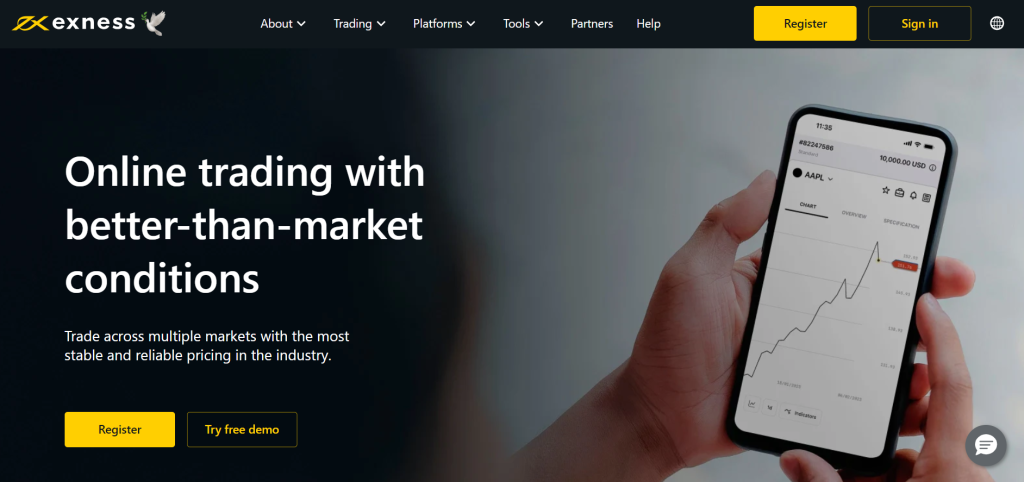
Pros and Cons Exness
| ✅ Pros | ❌ Cons |
| Exness is ideal for beginners starting with low capital | Exness might not offer instant deposits |
| There is a comprehensive suite of education for beginners | Exness does not publish its minimum deposit |

Interactive Brokers
Interactive Brokers caters to high-volume traders by providing unrivaled market access, low transaction fees, and a sophisticated trading platform that can effectively handle a large volume of transactions.
Their extensive range of trading markets should meet the sophisticated demands of serious traders, with superior risk management tools and a wide range of instruments.
Overall, high-volume traders appreciate IBKR’s dependability, execution speed, and the competitive advantage of its professional-grade tools.
| 💵Minimum Deposit | 0 USD |
| 💴Deposit Currencies | Multi-currency |
| 💻Deposit Options | SEPA Wise Balance Bank Wire ACH Bill Pay Checks BPAY ETF Local Bank Accounts e-Wallets Crypto wallets |
| 🫴🏻Instant Deposits Offered? | ✅ Yes |
| 💷Deposit Fees Charged? | ✅ Yes |
| 🗂️Segregated Accounts with Top-Tier Banks? | ✅ Yes |
| ❌Negative Balance Protection Offered? | ✅ Yes |
| 💶Account Base Currency | USD, AUD, CAD, CHF, EUR, GBP, HKD, JPY |
| 🚀 Open an Account | 👉 Click Here |
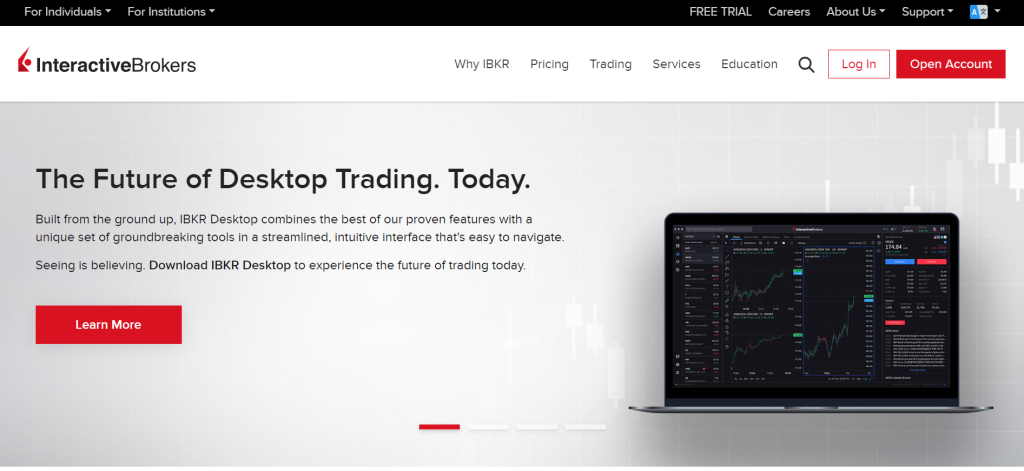
Pros and Cons Interactive Brokers
| ✅ Pros | ❌ Cons |
| Traders can begin with any minimum amount | IBKR is a complex platform that might be overwhelming to beginners |
| There are several deposit options for traders | Currency risks can be difficult to manage with multi-currency options |
| There are instant deposits available | Some features might be overwhelming for low-volume traders |

XM
Traders registering an account with XM will appreciate the broker’s range of bonuses, including a 30 USD no-deposit bonus and two separate deposit bonuses. The 50% deposit bonus applies to all initial deposits, while the 20% deposit applies to all other deposits.
They offer traders a well-regulated and transparent environment in which to explore and trade thousands of instruments. Furthermore, with boosted bonuses, traders can open larger positions without relying too much on leverage.
| 💵Minimum Deposit | 5 USD |
| 💴Deposit Currencies | USD, EUR, GBP, JPY, CHF, AUD, HUF, PLN, RUB, SGD, ZAR |
| 💻Deposit Options | Credit Card Debit Card Bank Wire Transfer Local Bank Transfer Skrill Neteller WebMoney |
| 🫴🏻Instant Deposits Offered? | ✅ Yes |
| 💷Deposit Fees Charged? | None |
| 🗂️Segregated Accounts with Top-Tier Banks? | ✅ Yes |
| ❌Negative Balance Protection Offered? | ✅ Yes |
| 💶Account Base Currency | USD, EUR, GBP, JPY, CHF, AUD, HUF, PLN, RUB, SGD, ZAR |
| 🚀 Open an Account | 👉 Click Here |
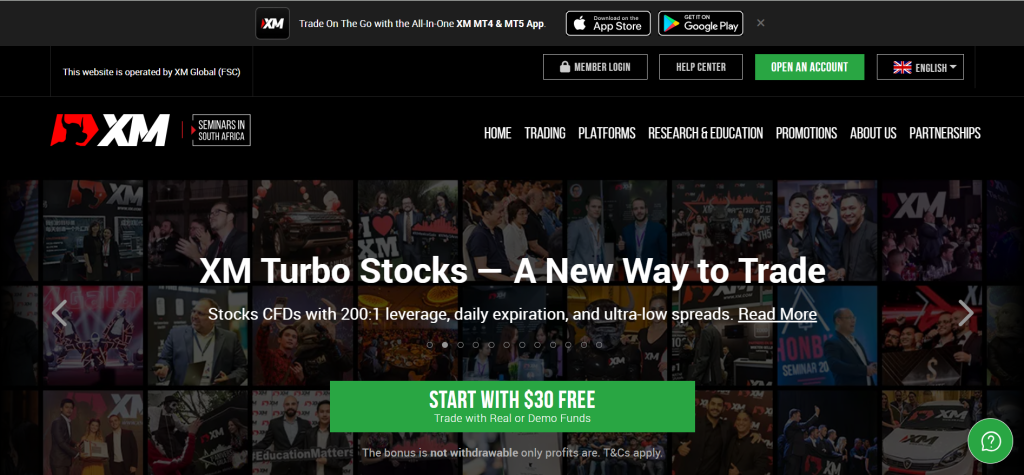
Pros and Cons XM
| ✅ Pros | ❌ Cons |
| XM offers traders the chance to start trading with a 30 USD no-deposit bonus | XM’s bonuses could encourage over-trading |
| XM is well-regulated and keeps all client funds segregated | There are strict deposit bonus terms and conditions |
| Traders do not pay any deposit fees | There are limited deposit currencies |

eToro
Overview
eToro offers a range of modern deposit methods for initial and subsequent deposits and ensures that all deposits are handled in record time. It provides traders with a safe trading environment in which all client funds are kept in segregated accounts with top-tier banks.
Furthermore, traders can easily start social and copy trading using eToro’s robust, award-winning platform.
| 💵Minimum Deposit | From 10 USD (US traders) |
| 💴Deposit Currencies | Multi-currency |
| 💻Deposit Options | Credit Card Debit Card PayPal Neteller Skrill Klarna/Sofort Banking Bank Transfer eToro Money |
| 🫴🏻Instant Deposits Offered? | ✅ Yes |
| 💷Deposit Fees Charged? | None |
| 🗂️Segregated Accounts with Top-Tier Banks? | ✅ Yes |
| ❌Negative Balance Protection Offered? | ✅ Yes |
| 💶Account Base Currency | USD |
| 🚀Open an Account | 👉 Click Here |
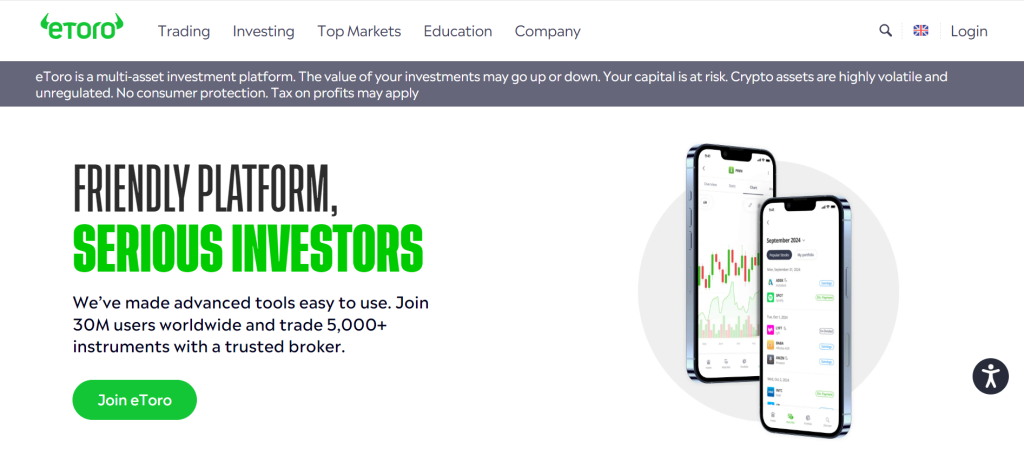
Pros and Cons eToro
| ✅ Pros | ❌ Cons |
| eToro offers several modern and traditional deposit methods | eToro only accepts USD as the account base currency |

AvaTrade
Overview
AvaTrade charges a minimum deposit of 100 USD (or currency equivalent). While this is not ideal for beginners, it is attainable for more experienced traders. AvaTrade’s platforms and overall offerings are ideal for those with experience in various financial markets.
However, they do not exclude beginners from its services, as several educational materials, tools, and resources are available on the platform.
Furthermore, they offer all traders access to a retail account and 1,260 financial instruments that can be traded on third-party and proprietary trading platforms.
| 💵Minimum Deposit | 100 USD |
| 💶Deposit Currencies | AUD, USD, GBP, EUR, CHF, JPY, ZAR |
| 💻Deposit Options | Bank Wire Transfer Credit/Debit Card PayPal WebMoney Neteller Skrill |
| 🫴🏻Instant Deposits Offered? | None |
| 💷Deposit Fees Charged? | None |
| 🗂️Segregated Accounts with Top-Tier Banks? | ✅ Yes |
| ❌Negative Balance Protection Offered? | ✅ Yes |
| 💶Account Base Currency | ZAR, USD, GBP, or AUD |
| 🚀Open an Account | 👉 Click Here |
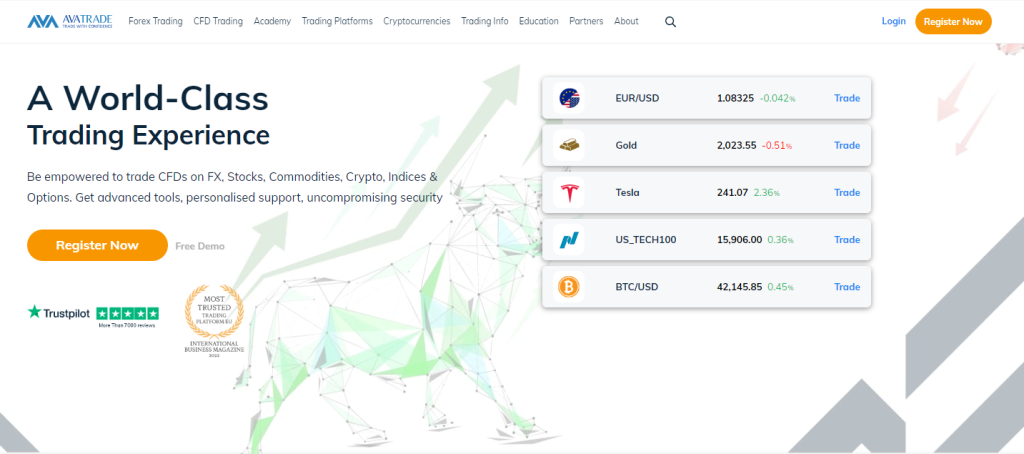
Pros and Cons AvaTrade
| ✅ Pros | ❌ Cons |
| AvaTrade is well-regulated and segregates all client deposits | The 100 USD minimum deposit might be too high for beginners |
| There are several reliable deposit methods offered | There are limited deposit and account base currencies |
| Traders can deposit funds without worrying about fees | Currency conversion fees might apply |

HFM
HFM is a reputable international broker that has been operating for over a decade, giving it a solid level of trustworthiness. Furthermore, the ability to make international deposits without incurring fees is another factor that sets this broker apart from the competition.
Traders can expect fast and secure payment methods to make deposits. In addition, strict KYC and AML policies are in place to safeguard traders further.
| 💵Minimum Deposit | 0 USD to register an account, 5 USD minimum deposit |
| 💴Deposit Currencies | USD, AED, EUR, GBP, CHF, JPY, NZD, CAD, ZAR, and more. |
| 💻Deposit Options | Bank Wire Transfer Electronic Transfer Credit Card Debit Card Skrill |
| 🫴🏻Instant Deposits Offered? | None |
| 💷Deposit Fees Charged? | None |
| 🗂️Segregated Accounts with Top-Tier Banks? | ✅ Yes |
| ❌Negative Balance Protection Offered? | ✅ Yes |
| 💶Account Base Currency | EUR, USD, NGN, ZAR |
| 🚀Open an Account | 👉 Click Here |
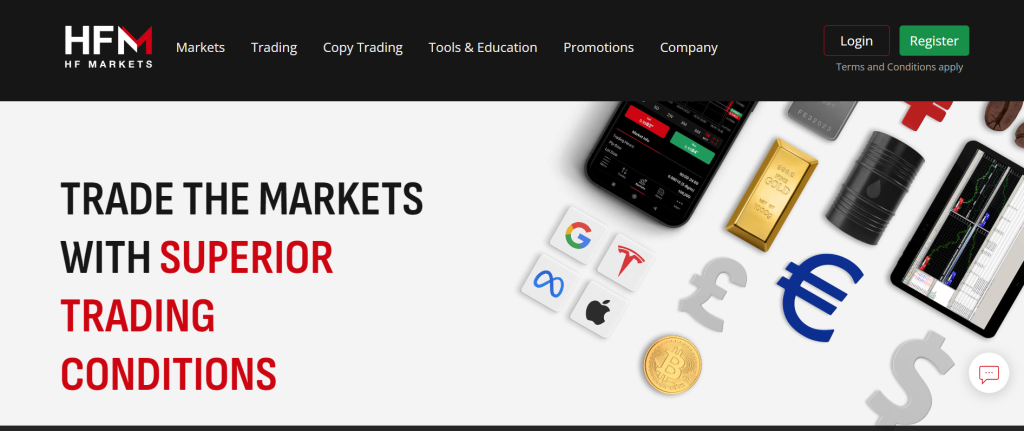
Pros and Cons HFM
| ✅ Pros | ❌ Cons |
| HFM is highly accessible to all traders regardless of their budgets or skills | HFM does not support instant deposits |

Saxo Bank
Saxo Bank’s advantage as the best secure deposit broker is that the firm is not only a registered CFD and Forex broker but also a fully licensed bank. This ensures that all client deposits are handled securely and that traders know they receive investor protection.
Saxo Bank offers reliable and fast deposit methods for traders, allowing them to deposit any amount they are comfortable with. Saxo also provides powerful trading software that allows traders to deposit funds anywhere.
| 💵Minimum Deposit | 0 USD |
| 💴Deposit Currencies | Multi-currency |
| 💻Deposit Options | Electronic Direct Debit Authorization FAST PayNow MEPS TT Wire Transfer Onshore inter-bank transfer Credit/Debit Card Bank Transfers |
| 🫴🏻Instant Deposits Offered? | ✅ Yes |
| 💷Deposit Fees Charged? | None |
| 🗂️Segregated Accounts with Top-Tier Banks? | ✅ Yes |
| ❌Negative Balance Protection Offered? | ✅ Yes |
| 💶Account Base Currency | 18 currencies |
| 🚀Open an Account | 👉 Click Here |
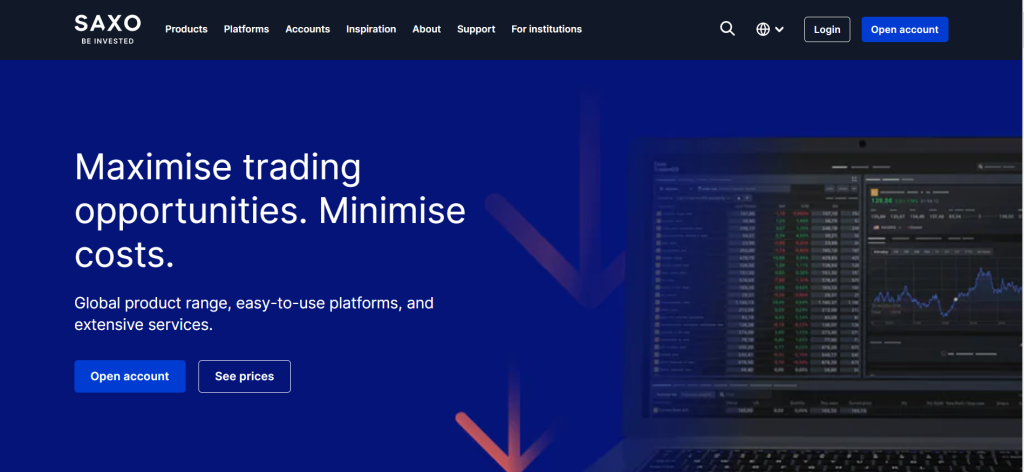
Pros and Cons Saxo Bank
| ✅ Pros | ❌ Cons |
| Saxo Bank is a fully licensed bank, which gives traders peace of mind about fund safety | Saxo Bank might be complex for beginners |
| Instant deposits are available | Saxo Bank caters more to experienced traders |

FXTM
FXTM is known for its flexible and reliable deposit methods, spanning bank wire, e-wallets, crypto, and some of the newest electronic payment gateways.
It tailors its offer to traders according to their region, allowing them to select a deposit method with which they are comfortable. This strategy also ensures that traders are not subject to high deposit fees.
| 💵Minimum Deposit | 10 USD |
| 💴Deposit Currencies | INR, NGN, KES, USD, EUR, GHS, RWF, ZAR, TZS, UGX, IDR, GBP, PLN, CZK |
| 💻Deposit Options | Bank Wire Transfer GlobePay Skrill PayRedeem Perfect Money Neteller Visa MasterCard Maestro Google Pay Local Indian Payment Methods Local Nigerian Instant Bank Transfers Equity Bank Transfer Ghanaian Local Transfer Africa Local Solutions M-Pesa FasaPay TC Pay Wallet |
| 🫴🏻Instant Deposits Offered? | ✅ Yes |
| 💷Deposit Fees Charged? | None |
| 🗂️Segregated Accounts with Top-Tier Banks? | ✅ Yes |
| ❌Negative Balance Protection Offered? | ✅ Yes |
| 💶Account Base Currency | USD, EUR, GBP, NGN |
| 🚀Open an Account | 👉 Click Here |
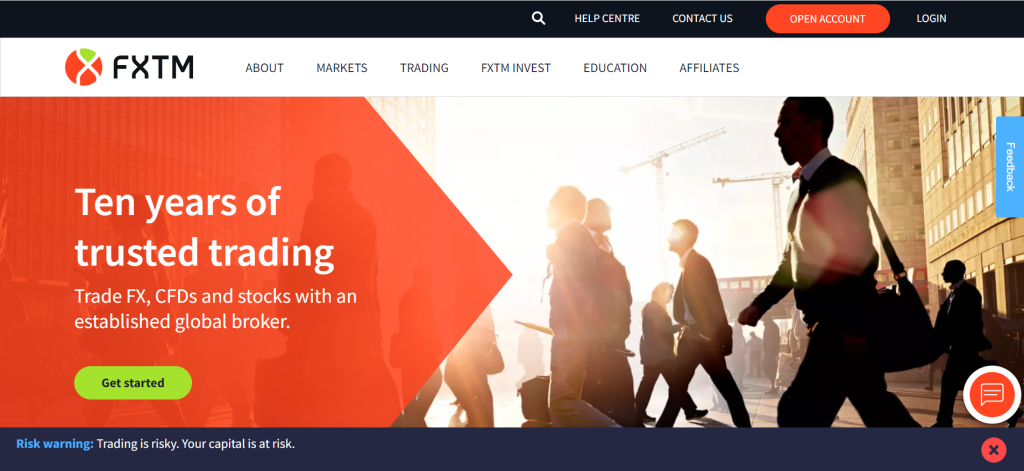
Pros and Cons FXTM
| ✅ Pros | ❌ Cons |
| FXTM offers a low entry barrier for those with low capital to invest | FXTM might charge currency conversion fees as there are limited account base currencies |

Pepperstone
Pepperstone is one of the world’s largest forex and CFD brokers, with massive monthly trading volumes. It offers its global clientele a safe and transparent trading environment.
Furthermore, traders can expect fast deposits, allowing them to start and continue trading without long processing times. Pepperstone also offers several trading platforms that can be used to trade various financial markets from anywhere in the world.
| 💵Minimum Deposit | 200 AUD |
| 💴Deposit Currencies | AUD, USD, JPY, GBP, EUR, CAD, CHF, NZD, SGD, HKD |
| 💻Deposit Options | Visa Mastercard Bank transfer MPESA PayPal Bpay Neteller POLi Skrill China UnionPay |
| 🫴🏻Instant Deposits Offered? | ✅ Yes |
| 💷Deposit Fees Charged? | ✅ Yes |
| 🗂️Segregated Accounts with Top-Tier Banks? | ✅ Yes |
| ❌Negative Balance Protection Offered? | ✅ Yes |
| 💶Account Base Currency | USD, GBP |
| 🚀Open an Account | 👉 Click Here |
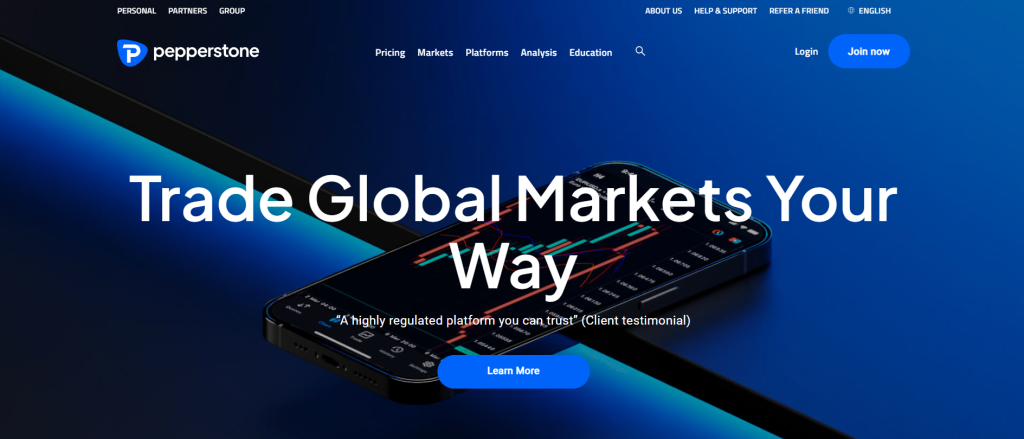
Pros and Cons Pepperstone
| ✅ Pros | ❌ Cons |
| Pepperstone keeps all client funds segregated from its operational funds | There is a high minimum deposit required |
| There are powerful trading platforms available | Less experienced traders might be overwhelmed by the trading solutions and complex platforms |
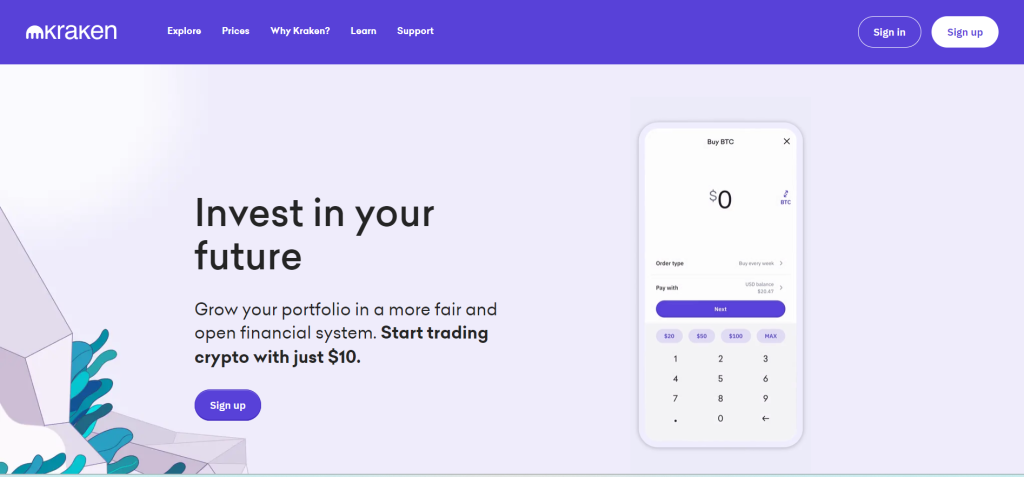
Kraken
Kraken is a cryptocurrency exchange with a good reputation globally. The exchange allows you to quickly and securely deposit both crypto and fiat currencies using various deposit methods.
Kraken’s support for cryptocurrency and fiat deposits adds flexibility and creates new trading possibilities by letting traders capitalize on crypto volatility.
Furthermore, Kraken’s forward-thinking strategy and solid security measures make it a perfect platform for traders exploring the intersection of traditional and digital finance.
| 💵Minimum Deposit | 0.0001 BTC |
| 💴Deposit Currencies | ZRX, 1INCH, AAVE, GHST, ACA, AGLD, AKT, ALCX, ACH, ALGO, TLM, AIR, ADX, FORTH, ANKR, APE, API3, APT, ANT, ARB, ARPA, ASTR, AUDIO, REP, REPV2, AVAX, AVT, AXS, BADGER, BAL, and |
| 💻Deposit Options | Crypto wallets PayPal |
| 🫴🏻Instant Deposits Offered? | ✅ Yes |
| 💷Deposit Fees Charged? | None |
| 🗂️Segregated Accounts with Top-Tier Banks? | None |
| ❌Negative Balance Protection Offered? | None |
| 💶Account Base Currency | Multi-currency |
| 🚀Open an Account |
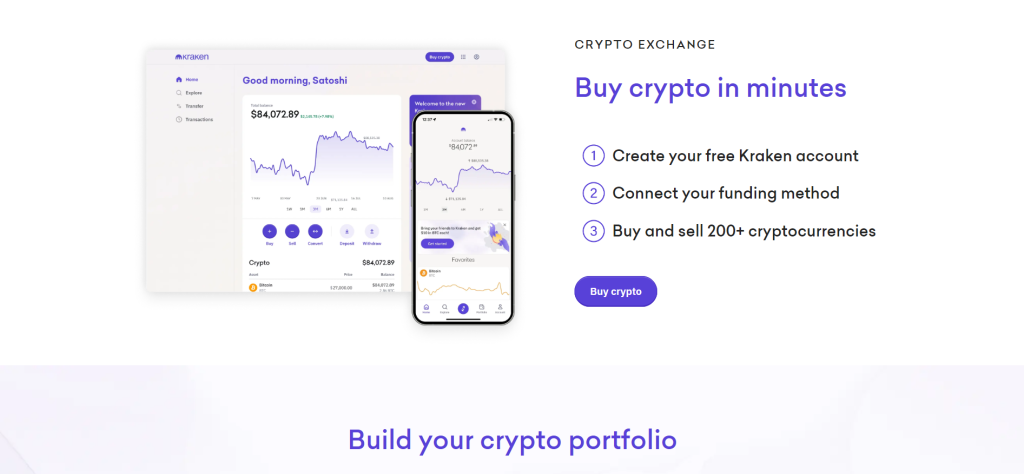
Pros and Cons Kraken
| ✅ Pros | ❌ Cons |
| Kraken supports a vast number of cryptocurrencies for deposits | Kraken does not specify the segregation of funds |
| Traders can deposit in USD using PayPal | The interface and features of Kraken might be daunting for novice traders |
| There are no internal deposit fees | There is limited fiat support |
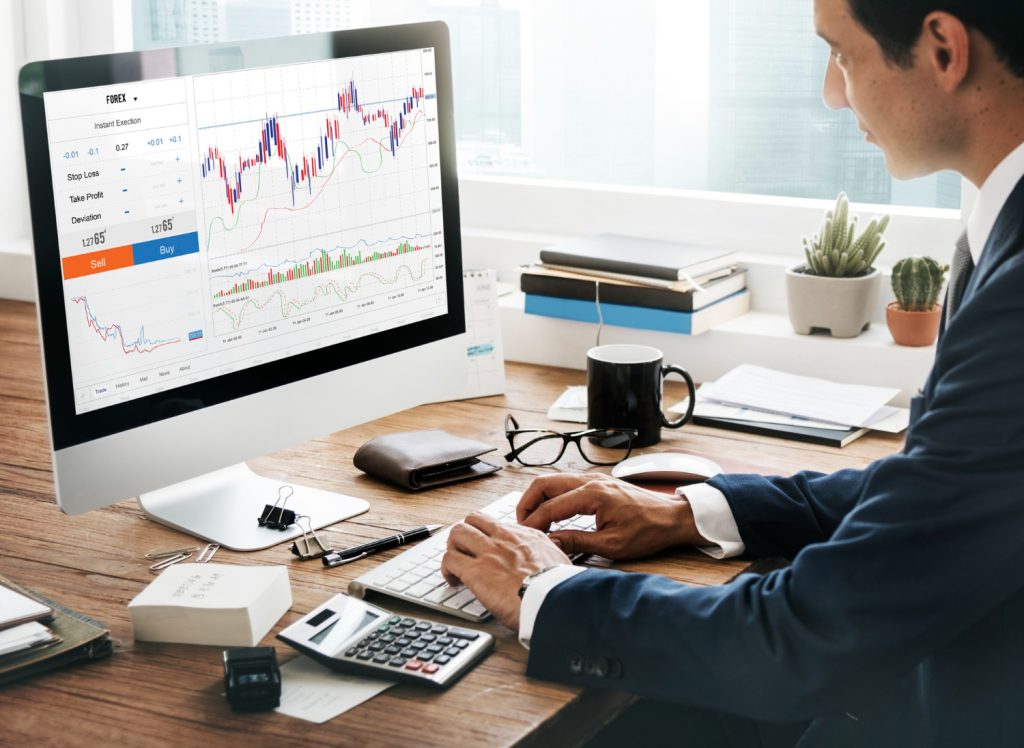
Understanding Deposit Requirements
Minimum deposits can often define the entry point into the online trading world. This initial payment can be seen as the foundation for traders to participate in the market.
Upon account registration, this amount payable to the broker is more than just a formality; it is a strategic entry point.
Furthermore, traders must realize that brokers can set varying deposit requirements according to their target population and the service level they want to maintain.
This threshold can be as low as the broker can afford to provide, which benefits beginners and ensures that the financial markets are accessible to a wider range of people.
The Purpose Behind Minimum Deposits
A minimal deposit serves a dual purpose, namely the following:
✅It showcases the trader’s dedication to their market pursuit
✅The minimum deposit offers the broker an additional financial buffer to cater for administrative expenses associated with account maintenance.
✅Overall, this mutually beneficial value exchange positively fosters the overall trade environment.
✅ Furthermore, these deposits are thresholds that regulate traders’ trading capacities. Larger deposits offer wider alternatives in terms of instruments available and increased access limits, which are more suitable for experienced traders aligned with this strategy.
Balancing Risk and Access
Brokers use deposit requirements as a risk management technique. Higher deposits can often be associated with platforms that provide sophisticated tools designed for experienced traders who understand the complexities of risk management.
Lower deposits, on the other hand, frequently come with training tools and easier interfaces to help beginner traders flourish.
Overall, these needs are not static; they alter in response to market conditions, legislative changes, and competitive pressures, demonstrating a dynamic financial landscape.
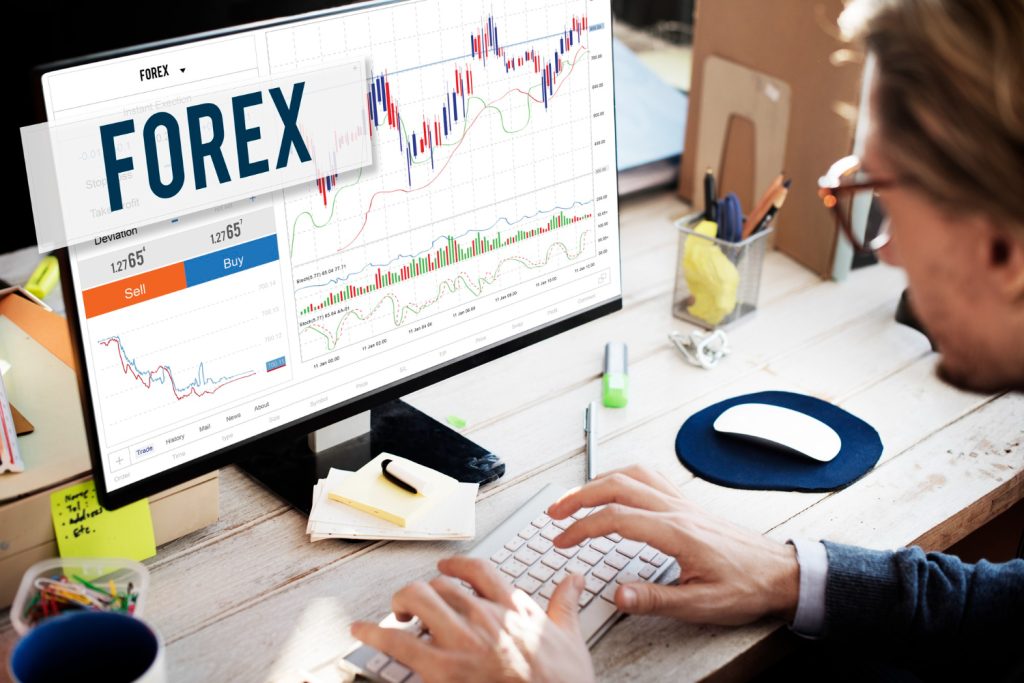
Fees Related to Deposits that Traders Must Know
Traders face several fees when they trade online, and understanding them is crucial to ensure that traders make informed decisions while managing their capital.
These costs might be simple or complicated, and they can be disguised in the fine print. Therefore, navigating this financial landscape needs a keen eye and comprehension of the most prevalent fees.
Transaction Fees
Transaction fees can be either a fixed rate or a deposit percentage. Some brokers absorb these fees as client service, while others pass them on to the trader.
Therefore, you must know which side of this split your preferred broker lies on, which might affect your trading budget.
Currency Conversion Charges
Trading in a currency different from your deposit currency can often result in conversion costs. These costs might vary greatly based on the broker’s policy and currency.
Conversion fees can have a subtle but considerable influence on your wealth, eroding it over time.
Processing Fees
Certain payment methods could charge processing costs. For example, credit card issuers and e-wallet providers frequently impose transaction fees.
While brokers cannot control these fees, they can choose whether to pass them on to their clients or provide a subsidy as a competitive advantage.
Inactivity Fees
Inactivity fees are the hidden counterparts of deposit-related expenses. Certain brokers can charge a fee if your account is dormant for an extended time.
The Impact of Fees on Trading Strategy
While fees may appear to be small in a much bigger trading picture, they can significantly impact the overall direction of your trading strategy.
For instance, making frequent deposits and withdrawals can result in hefty costs for active traders. However, strategic traders can easily plan their trades to minimize these expenses.
In contrast, passive and more casual traders can avoid the traps of inactivity fees by managing their positions to maintain their investments.
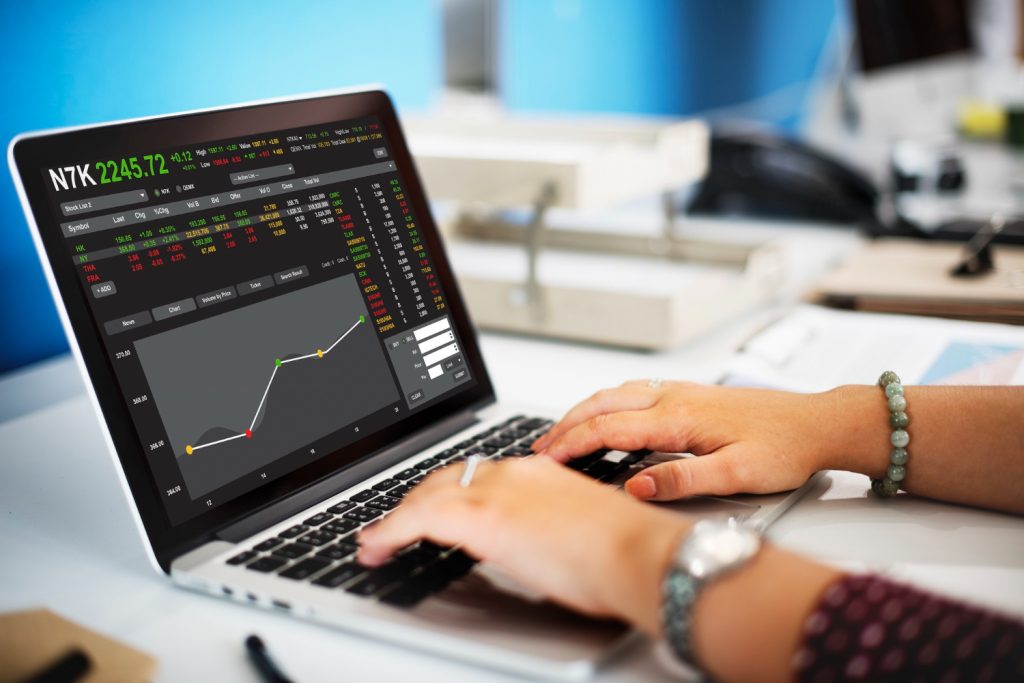
In Conclusion
According to our research, the platforms we identified distinguish themselves by matching deposit requirements to their customers’ demands and resources, backed up by a transparent fee structure that protects traders’ cash.
Addendum/Disclosure: No matter how diligently we strive to maintain accuracy, the forex market is volatile and may change anytime, even if the information supplied is correct when going live.
Investor Warning: Foreign currency trading on margin is associated with an elevated risk and may not be appropriate for all South African investors.
Before engaging in foreign currency or Contract for Difference (CFD) trading, you must evaluate your investing goals, expertise, appetite for risk, and willingness to be exposed to risk. In addition, you should not start investing capital you cannot afford to lose because you could lose part of your original investment.
Faq
Yes, many platforms enable you to start trading with little investments. While this lets you enter the financial markets with a small amount of capital, it might limit what and how much you can trade, affecting your profitability.
Yes, after you feel more comfortable with the platform, you can often raise your deposit and upgrade your account if the broker offers tiered accounts (for instance, going from a Cent to a Standard account).
Not always. Many prominent platforms provide fee-free deposits. However, you should always evaluate the broker’s terms and conditions to avoid hidden fees.
When selecting a platform or broker, consider trading costs, asset selection, platform tools, and overall reputation carefully.
